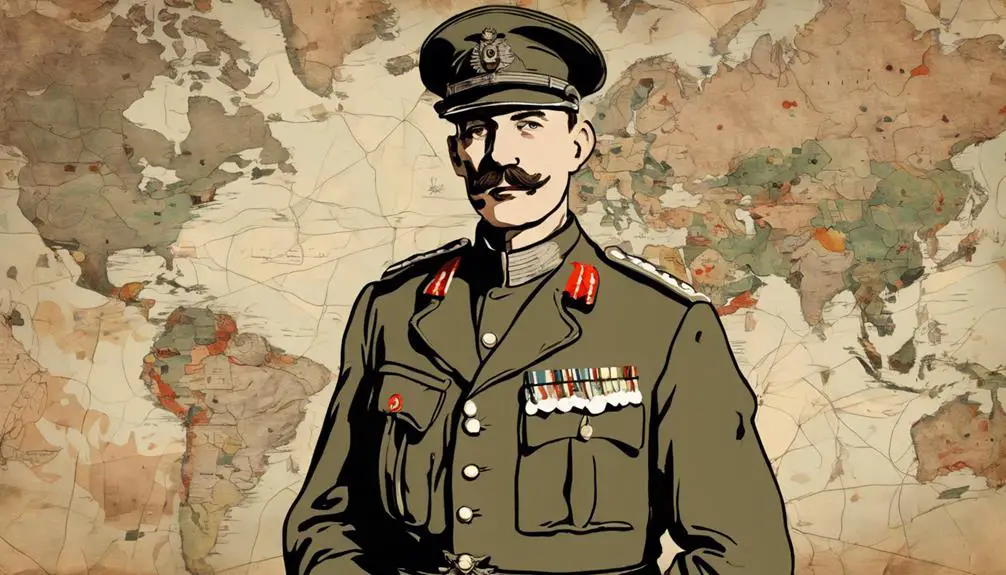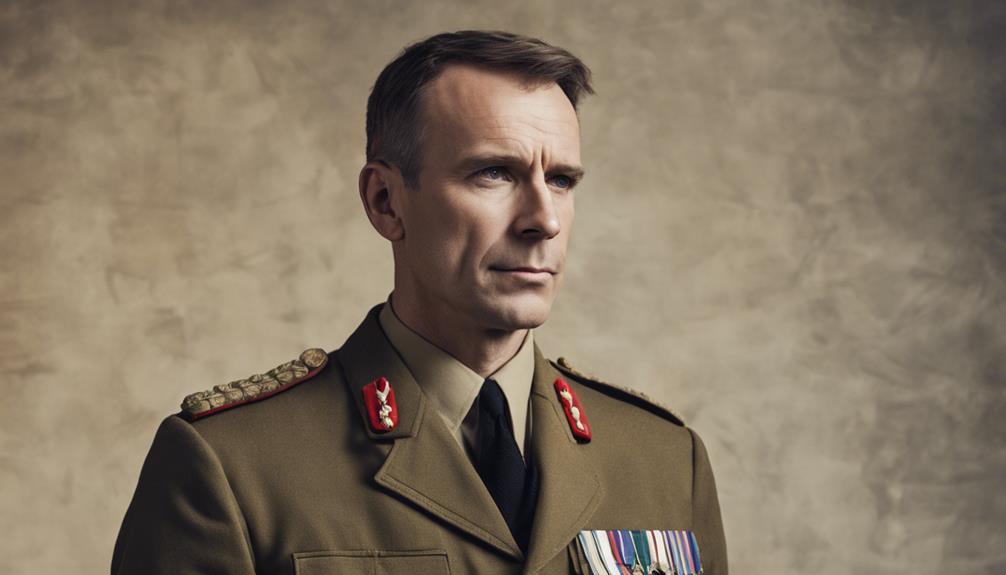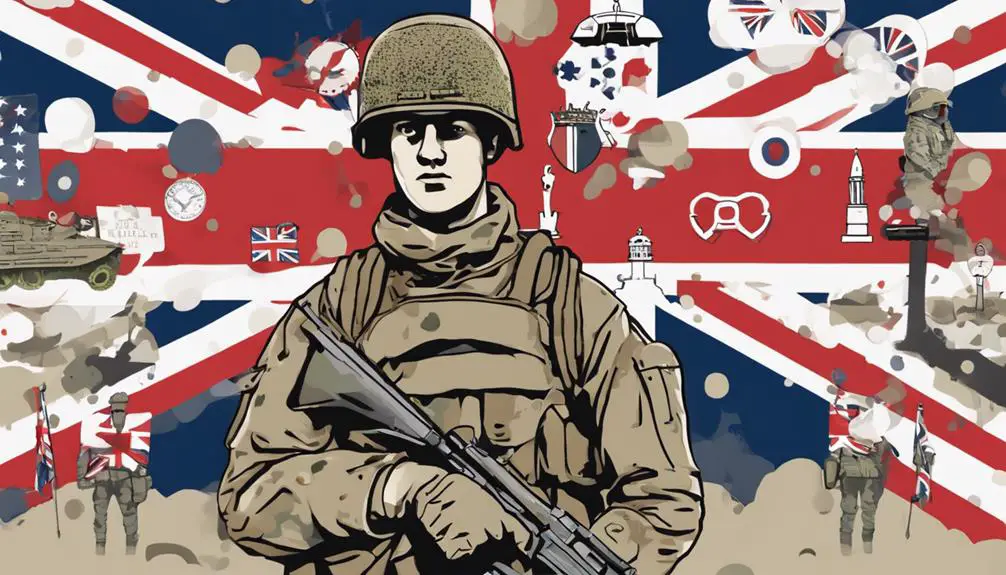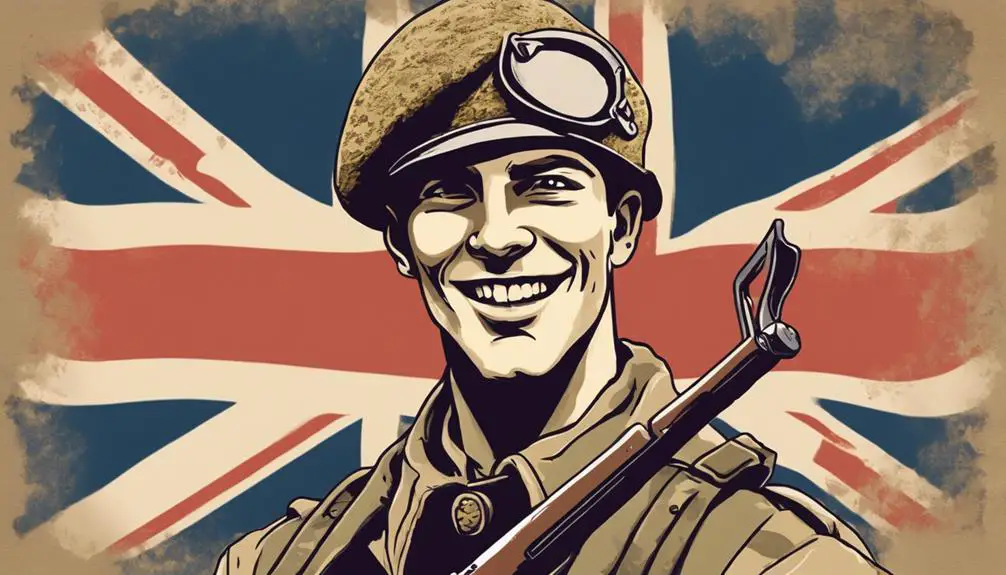You're familiar with the term "Rupert" in British military slang, but do you know its intricacies? Originating as a derogatory term for officers, it has evolved to imply inexperience and arrogance. Rooted in historical class divisions, soldiers used it to mock perceived elitism. Over time, the term shifted from a class-based to a merit-based distinction, reflecting linguistic adaptation to societal changes. As you explore the complexities of military culture, you'll uncover more about this enigmatic term and its profound impact on soldier-officer dynamics – and that's just the beginning of the story.
The Birth of a Slang Term

You may be wondering how the term 'Rupert' originated in British military slang, and the answer lies in the early 20th century, when British officers began using it as a derogatory term for their own kind. This linguistic development is rooted in the historical context of the time, marked by class divisions and social hierarchies within the British military.
During this period, the term 'Rupert' emerged as a colloquialism used by soldiers to mock the perceived elitism and arrogance of their commanding officers.
The term's linguistic roots can be traced back to the name Rupert, which was commonly associated with the aristocracy and upper classes. By adopting this term, soldiers were able to subtly critique the social and economic privileges afforded to their commanding officers.
This subtle form of resistance speaks to the complex power dynamics at play within the British military during the early 20th century.
As you explore the origins of 'Rupert,' it becomes clear that the term is more than just a slang expression – it's a reflection of the historical context and social attitudes that shaped British military culture.
Evolution of Meaning Over Time
As the term 'Rupert' became increasingly entrenched in British military slang, its meaning began to shift and adapt to reflect changing attitudes towards authority and class within the armed forces. Over time, you'll notice a subtle yet significant evolution in the term's connotation.
| Original Meaning | Evolved Meaning |
|---|---|
| Derogatory term for officers | Term to describe inexperienced officers |
| Implies arrogance and elitism | Implies inexperience and incompetence |
| Class-based distinction | Merit-based distinction |
This semantic drift is a classic example of linguistic adaptation, where a term's meaning shifts in response to changing cultural and social contexts. As the British military underwent reforms and shifts in power dynamics, the term 'Rupert' adapted to reflect these changes. What was once a class-based distinction became a merit-based distinction, highlighting the complexities of language and its ability to evolve alongside societal changes. This evolution of meaning not only reflects the changing attitudes within the armed forces but also underscores the dynamic nature of language itself.
Understanding the Rupert Archetype

Exploring the Rupert archetype, a product of the British military's complex social hierarchy, embodies a unique set of characteristics that have evolved alongside the term's shifting connotation. As you investigate the world of military slang, you'll find that the Rupert stereotype is deeply rooted in the British Army's social structure. Traditionally, Ruperts were seen as classless officers, lacking the aristocratic background of their predecessors. This perception has led to a mix of admiration and disdain towards Ruperts, who are often viewed as outsiders within their own ranks.
You'll notice that the Rupert archetype is often associated with specific traits, such as being overly ambitious, aggressive, and sometimes arrogant. These characteristics have contributed to the term's negative connotation, with some viewing Ruperts as overly competitive and willing to do whatever it takes to climb the ranks.
However, understanding the complexities of military stereotypes, including the Rupert, aren't absolute and can vary greatly depending on individual experiences and contexts. By grasping the nuances of the Rupert archetype, you'll gain insight into the intricacies of the British military's social dynamics.
Mystery Surrounds Origin Story
Despite extensive research, the origin of the term 'Rupert' remains shrouded in mystery, leaving historians and linguists to explore fragmented theories. As you investigate the history of this slang term, you'll encounter a plethora of conflicting explanations, each attempting to unravel the enigma surrounding its genesis.
Theories abound, from connections to aristocratic lineage to associations with fictional characters, but concrete evidence remains elusive. This linguistic enigma has sparked intense debate, with some attributing the term to historical anomalies, such as the alleged resemblance between the aristocratic surname 'Rupert' and the stereotypical officer class.
Others propose that the term emerged as a tongue-in-cheek commentary on the perceived elitism of British military officers. Despite the uncertainty, one thing is clear: the origin of 'Rupert' remains a historical anomaly, a puzzle waiting to be solved.
As you navigate the complex landscape of British military slang, you'll find yourself entangled in a web of speculative theories, each attempting to demystify the elusive roots of this enigmatic term.
Impact on Military Culture

You'll find that the term 'Rupert' has permeated military culture, influencing the way soldiers perceive and interact with their officers, fostering a sense of camaraderie and shared experience among the enlisted ranks.
The 'Rupert' phenomenon has contributed greatly to unit cohesion, as it creates a sense of shared understanding and collective identity among soldiers. This, in turn, enhances morale and promotes a stronger sense of teamwork.
| Aspect | Impact on Military Culture | Effect on Soldiers |
|---|---|---|
| Officer Stereotypes | Reinforces negative stereotypes about officers | Creates a sense of 'us versus them' |
| Unit Cohesion | Fosters a sense of shared experience among soldiers | Enhances morale and teamwork |
| Communication | Encourages informal communication among soldiers | Breaks down hierarchical barriers |
The 'Rupert' phenomenon has also perpetuated certain officer stereotypes, which can lead to a sense of separation between officers and enlisted personnel. However, it has also encouraged informal communication among soldiers, breaking down hierarchical barriers and promoting a sense of unity within the ranks.
Frequently Asked Questions
Is Rupert Used as a Derogatory Term in Other English-Speaking Countries?
You might wonder if the term 'Rupert' is used derogatorily elsewhere. In other English-speaking countries, the answer is no.
This term is unique to the British military, stemming from a cultural legacy of colonialism. It's not a case of cultural appropriation, as it's deeply rooted in British military history.
The term's negative connotations are specific to the British context, making it unlikely to be adopted elsewhere as a derogatory term.
Can Civilians Use the Term Rupert in Informal Conversations?
When using colloquial language, you might wonder if you can casually drop the term 'Rupert' in informal conversations. Generally, it's not a term you'd typically use in everyday chats, as it's not a widely recognized or commonly used phrase outside of specific military contexts.
Social norms dictate that you stick to more familiar expressions to avoid confusion.
Is There a Female Equivalent to the Term Rupert in British Military Slang?
You might be surprised to know that only 10% of military personnel are women. When you consider the lack of gender equality in the military, it's no wonder there isn't a widely recognized female counterpart to the term 'Rupert.'
Despite efforts towards equality, the term 'Rupert' remains a masculine concept. You won't find a direct female equivalent in British military slang, as the linguistic culture hasn't yet adapted to include a feminine counterpart.
Does the Term Rupert Have Any Connection to the Famous Cartoon Character?
You might wonder if the term 'Rupert' has any connection to the beloved cartoon character from the popular 1920s comic strip. Curiously, the origins of the name 'Rupert' in the cartoon context are unclear.
Some speculate it was inspired by the classic English name, while others point to the 'Bear Necessity' of a memorable character. However, there's no direct link between the cartoon Rupert and the British military slang term, which is believed to have originated from a different source.
Can the Term Rupert Be Used to Refer to a Specific Military Rank?
You're wondering if the term 'Rupert' can refer to a specific military rank.
In the military hierarchy, an officer is typically referred to by their rank, such as Lieutenant or Captain.
However, in British military slang, a Rupert specifically refers to a commissioned officer, particularly in the infantry or cavalry.
Conclusion
As you explore the world of British military slang, you're left wondering about the enigmatic 'Rupert'. This term, born from unknown origins, has evolved to embody a peculiar archetype.
Shrouded in mystery, its meaning has shifted over time, influencing military culture. Like a ghostly apparition, the Rupert lingers, leaving an indelible mark. Its presence is a whispered secret, known only to those who've served.







